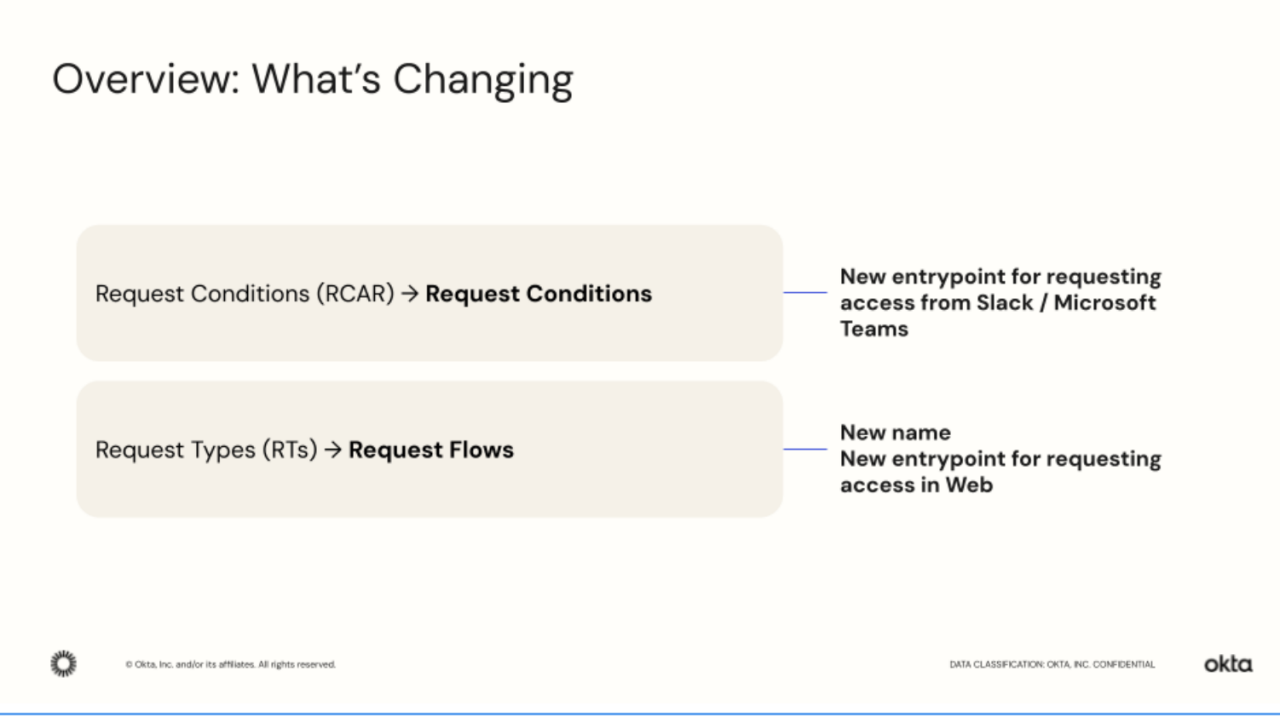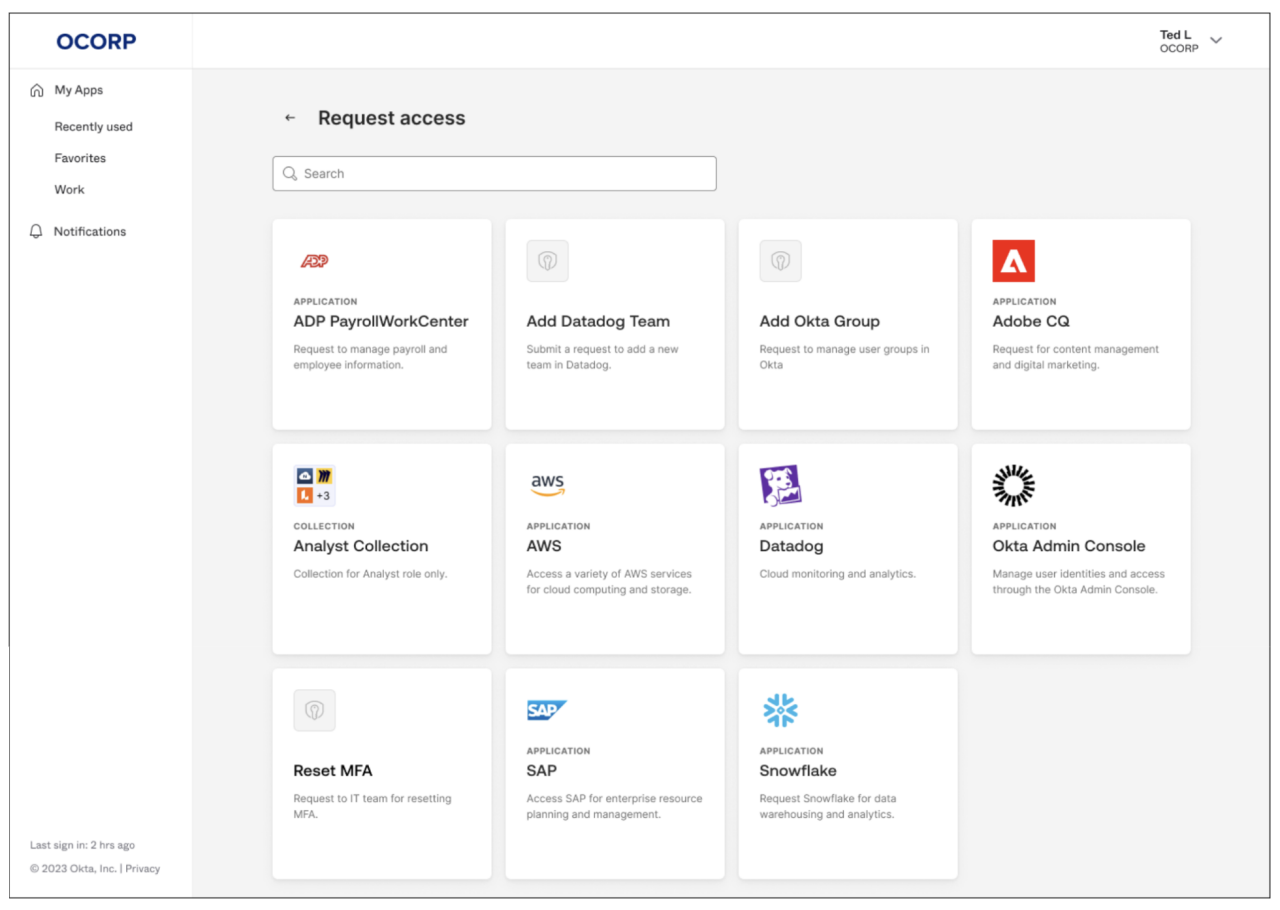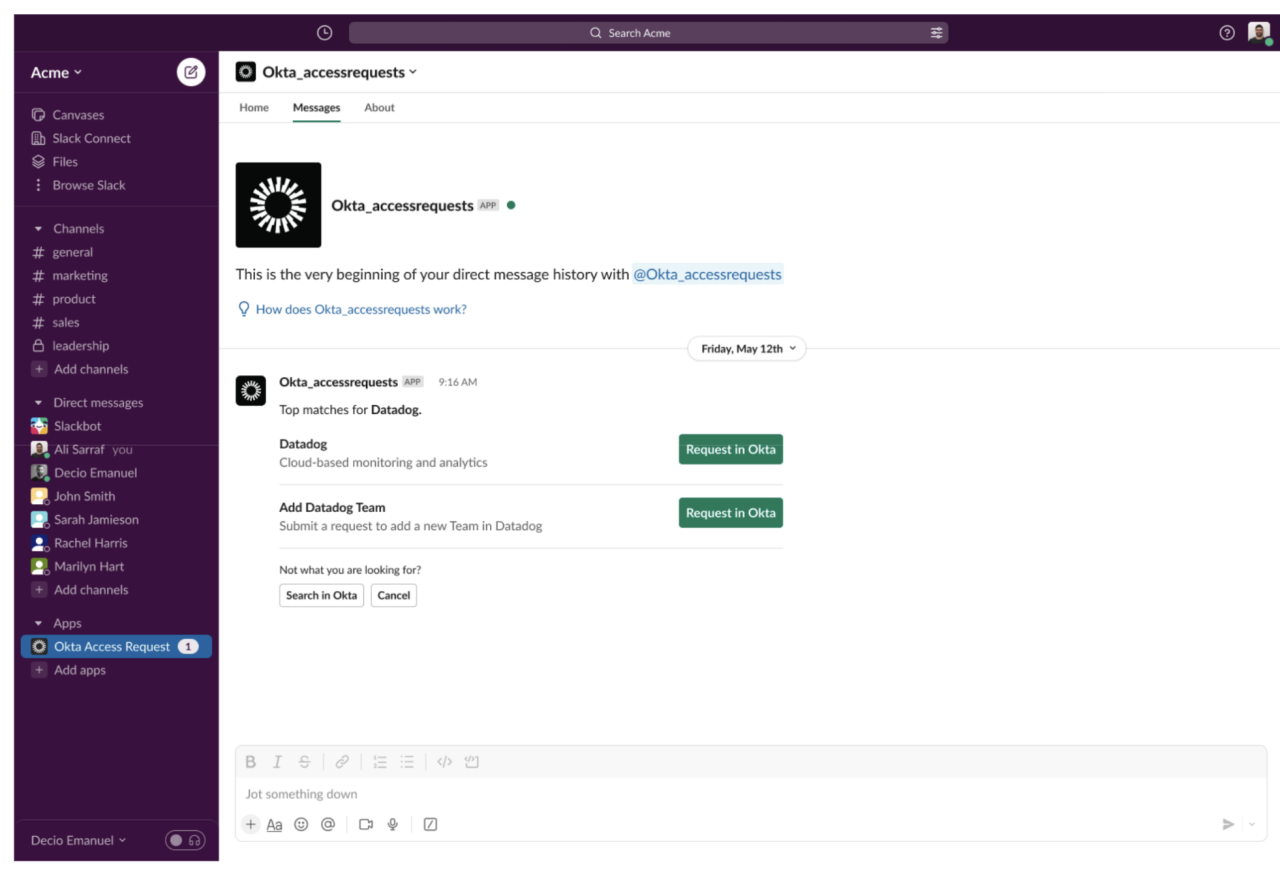Gaining swift access to critical tools while maintaining least privilege is a cornerstone of Okta Identity Governance. Since our product's inception, we've consistently innovated to help end-users get the access they need faster and to empower admins to create and manage access policies that uphold a strong security posture and eliminate standing privileges. Continuing this commitment, we're thrilled to introduce the Unified Requester Experience.
This new feature gives admins the freedom and autonomy to choose how they build Access Requests without compromising the requester's journey. Now, whether an Okta admin leverages the scalability of Request Conditions or the flexibility of custom Request Flows (formerly "Request Types"), end-users can intuitively initiate requests directly from the Okta dashboard, Slack, or Microsoft Teams.

Unified Requester Experience: Built for end users
This integrated model for Access Requests makes it easier than ever for end users to get necessary access and stay productive.
- Request where they access: Browse the resource catalog and submit available requests directly from their Okta dashboard.
- What’s new? Requests built with Request Flows are now available in the Okta dashboard resource catalog, alongside requests built with Request Conditions.

- Stay on task: Make and approve requests instantly on Slack or Teams — or on the go with a mobile device.
- What’s new? Requesters can search and initiate requests built with Request Conditions directly from Slack and Teams, integrating Access Requests seamlessly into their workflows.

- Keep up-to-date: Track all requests and approval tasks seamlessly through Slack, Teams, email, or the Okta Access Requests application.
Unified Requester Experience: Empowering Okta admins
Admins now have the flexibility to choose, on a use-case-by-use-case basis, whether to implement an access request with Request Conditions or custom Request Flows. The best part? They no longer need to worry about the impact on the end-user experience. Regardless of how an admin chooses to build the request, it will be uniformly available to requesters in the unified resource catalog on their Okta dashboard, as well as in Slack and Teams.
Leverage the right tool for your use case:
- Request conditions: Ideal for rolling out scalable Access Requests for applications, entitlement bundles, collections, and groups. Take advantage of out-of-the-box functionality like separation of duties, time-bound access, and request-on-behalf-of capabilities.
- Request flows: Perfect for building custom logic for advanced functionality or non-access-oriented use cases, such as requesting an MFA reset or the creation of a new Okta or Gmail group.
Both Request Conditions and Request Flows enable you to:
- Improve your organization's security posture by moving away from standing privileges for sensitive resources
- Implement time-bound access
- Increase efficiency by promoting self-service
- Remove the need for manual, error-prone processes
What’s coming next
We plan to continue investing in a seamless, scalable, and unified access request experience for both admins and requesters. This includes the in-product rebranding of Request Types to custom Request Flows, further unifying the request submission experience end-to-end across Slack/Teams and the web, and streamlining the build experience for admins.
We’re excited to continue offering the broad use cases covered by Request Conditions and custom Request Flows, all while making Access Requests easy and straightforward for end-users. The Unified Requester Experience is now in Early Availability for all Okta Identity Governance customers. See Enable self-service features.
To learn more about the Unified Requester Experience, see our documentation or connect with one of our specialists.
These materials are intended for general informational purposes only and are not intended to be legal, privacy, security, compliance, or business advice..






